
29th International Input-Output Association Conference
and
11th Edition of the International School of I-O Analysis
25th - 30th June 2023, Alghero, Italy
|
|
Keynotes Speakers
Introduction to the Plenary Sessions
For the 2023 IIOA Conference, we will have five Keynote Speakers across three Plenary Sessions and a Plenary Panel Session on the compilation of Global Inter-country Input-Output tables by international organisations.
InspIO Talks
Based on the innovation at the 2019 IIOA Conference, where a new format was introduced to one of the Plenary Sessions, the second and third Plenary Sessions on Wednesday and Thursday will cover two keynote addresses called InspIO Talks with no more than 15 minutes each, high-level, note-free and slide-thin presentations. The Speakers will be required to focus more on key messages and are encouraged to use memorable visual aids. The InspIO Talks are attempting to engage and excite the audience in a similar way to the well-known TED talks. Each talk will be followed by 15 minutes of questions and discussion.
The 2023 IIOA Conference InspIO Talk speakers will be two former presidents of the IIOA:
- Jan Oosterhaven, University of Groningen, Netherlands; and
- Satoshi Inomata, IDE-JETRO, Japan.
Keynote Sessions
The Plenary Sessions on Tuesday, Wednesday and Thursday will be of the conventional type. Each session will have 25-30 minutes presentation followed by 25-30 minutes questions and answers. The three highly reputable guests will be:
- Rutger Hoekstra, Associate Professor at the Institute for Environmental Sciences, Leiden University.
- André Loranger, Assistant Chief Statistician for Economic Statistics, Statistics Canada.
- Nadim Ahmad, Deputy Director at the OECD Centre for Entrepreneurship, SMEs, Regions and Cities.
Panel Keynote Session
On Friday, sponsored by the European Commission’s Joint Research Centre, the Scientific Programme Committee has invited representatives from the five international organisations conforming the GIANT initiative to discuss about the relevance for the IO community and IIOA members to have them working together towards a common global benchmark for the input data used to produce Global Inter-Country SUTs and ICIOs. The GIANT initiative is an inter-agency network consisting of the Asian Development Bank (ADB), the European Commission (EC), the Organisation for Economic Co-operation and Development (OECD), the International Monetary Fund (IMF) and the United Nations Economic Commission for Latin America and the Caribbean (UN-ECLAC). GIANT operates under the umbrella of the OECD Regional-Global Trade in Value Added (RG-TIVA) initiatives. The Panel Keynote Session will have one hour of discussion among panellists followed by 25-30 minutes questions and answers from the audience.
Background to the speakers
Nadim Ahmad – Career profile

Nadim Ahmad is Deputy Director at the OECD Centre for Entrepreneurship, SMEs, Regions and Cities (CFE), helping to drive momentum in the development of integrated policies that look holistically at people, places and firms, and, in doing so, better policies for better lives, and resilient and sustainable economic growth.
In his role, Mr Ahmad provides intellectual leadership and quality control to ensure that the OECD is at the forefront of policy thinking in the domains covered by CFE. Mr Ahmad joined the OECD in 2000. Before joining CFE in 2020, he worked in the OECD’s Statistics and Data Directorate, where he led international efforts to better account for globalisation, entrepreneurship and business performance, and, in particular, the role of MNEs and SMEs in global value chains, and the OECD’s Directorate for Science Technology and Innovation, where he developed the OECD’s first estimates of carbon dioxide emissions embodied in international trade.
Prior to joining the OECD, Mr Ahmad worked in the UK’s office for National Statistics (1996-2000) and the UK’s Ministry of Finance (1993-1996).
Nadim’s presentation theme
Nadim Ahmad will present “What the accounting framework does not tell you – A new look at trade in value-added and global value chains”. His keynote speech will show us the relevance of taking a perspective from purchasers’ prices rather than basic prices for global value chains analyses. Indeed, using basic prices can present a significantly different picture of GVCs, for example concerning the contribution to the domestic economy of exports of a given product.
Jan Oosterhaven – Career profile
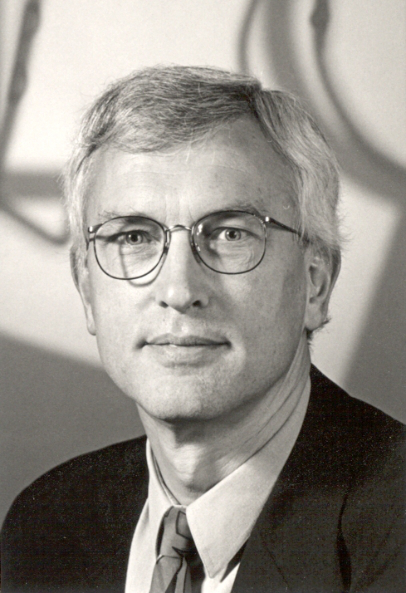
Jan Oosterhaven is emeritus professor of Spatial Economics at the University of Groningen. As a visiting professor he taught urban economics in 1985-1986 at the University of California, Los Angeles, and as a senior consultant he worked part-time for TNO in Delft in 1998-1999. He finished his MA in Econometrics at the Erasmus University Rotterdam and got his PhD on "Interregional Input-Output Analysis and Dutch Regional Policy Problems" with the University of Groningen in 1981 (published with Gower). Most recently he published “Rethinking Input-Output Analysis, A Spatial Perspective, Second Edition” with Springer in 2022.
His research focuses on interregional input-output analysis, demo-economic modeling, indirect effects of supply shocks, such as disasters and new transport infrastructure, and integral cost-benefit analyses of all kind of spatial policy measures. Besides about 75 research reports, mostly for government agencies, he has written and edited 12 books and some 160 scientific articles on a wide range of subjects, such as sectoral, regional and urban (economic) policy, housing, impacts of social security, high speed rail, road infrastructure, disasters, tourism and agricultural projects. These articles have been published in Annals of Reg.Sc., Env. & Pl. A, Econ. Syst. Res., ESB, Geografie, Geo. Analysis, Int. Reg.Sc. Rev., J. of Geo.Syst., J. of Reg. Sc., Kwartaalschr. Econ., Openb. Fin., Papers in Reg. Sc., Reg. Studies, Reg. Sc. & Urb. Econ., Res. in Transp. Econ., Spat. Econ. An., Southern Econ. J., Tijdschr. Vervoersw. and Transp. Presently he is a Fellow of the Regional Science Association International (RSAI) and the International Input-Output Association (IIOA). Before that, he was President of the IIOA, Member of the scientific board of the Institut für Wirtschaftsforschung in Halle, Editorial board member of the Australazian J. of Reg. Studies, Brazilian Review of Reg. Studies, Kwartaalschrift Economie, Papers in Reg. Sc., Tijdschr. Vervoersw. and Econ. Syst. Res. (of which he also was the managing editor for 5 years).
Jan’s presentation theme
Inflation is a key policy concern, not only of central bankers, but of the public at large. What has IO analysis to offer, aside from its unique intersectoral, and often also unique interregional or international perspective? It offers two one-sided and completely contradictory views that quantify either the full passing on of any primary cost increase into final demand price increases or the full passing on of any final revenue increase into primary input price increases. It appears that two approaches can be summarized mathematically in such a way that the two basic IO price models are combined with the two basic IO quantity models of the same name into two single equations, namely the ultimate demand-driven and the ultimate supply-drive IO equation, which represents a didactical bonus.
Satoshi Inomata – Career profile

Satoshi is a researcher of the Institute of Developing Economies, JETRO, Japan, and currently a visiting researcher at the Organisation for Economic Co-operation and Development (OECD), Paris, France.
He is the previous President of the International Input-Output Association, and a member of the Editorial Board of Economic Systems Research.
Satoshi received his BA in Politics and Economics from the University of London, MSc in Development Economics from the University of Oxford, and PhD (Economics) from the Hitotsubashi University, Japan. He directed various projects of constructing international input-output tables, including the Asian International Input-Output Tables, the BRICs International Input-Output Table, and the Transnational Interregional Input-Output Table for China, Japan and Korea.
His recent research includes in-depth studies of global value chains using input-output techniques. Recently, he has been double-awarded two most prestigious academic prizes in Japan for his book Global Value Chains (2019, Nihonkeizai-shimbun publishing). He also wrote a chapter on a compilation method of multi-country input-output table in the United Nations Handbook on Supply and Use and Input-Output Tables with Extensions and Applications.
Satoshi’s presentation theme
In this talk, Satoshi will present new referential statistics for concentration risk of global supply chains. The study’s net contribution rests on the development of a metric that indicates the degree of supply chain exposure to concentration risk in terms of the “frequency” of supply chain engagement with the regions of analytical concern, alongside the traditional approach based on volume measures of value-added concentration. Japan, a country with a high propensity to encounter natural hazards, and China, under mounting geopolitical tension with the United States, are chosen as the target regions for risk assessment. In addition, the highly asymmetric structure of mutual economic dependency in the US-China relations is identified.
Rutger Hoekstra – Career profile

Rutger Hoekstra is an Associate Professor at the Institute for Environmental Sciences, Leiden University. He is an expert in “Beyond-GDP”, specialising in the role that input-output modelling can play in shaping post-growth societies. He is author of “Replacing GDP by 2030: Towards a common language for wellbeing and sustainability” published by Cambridge University Press. He currently leads WISE Horizons, a large European project, which is developing indicators, accounts and policy models for Wellbeing, Inclusion and Sustainability (WISE).
Rutger has a PhD in environmental economics has worked with/for Statistics Netherlands, United Nations, OECD, World Bank, European Commission, European Central Bank, national ministries, NGO’s, KPMG and large companies. Some past roles include:
- Co-chair of the UN-ECE/OECD/Eurostat Task Force which developed the Conference of European Statisticians Recommendations on Measuring Sustainable Development.
- Project leader of the Sustainability Monitor for the Netherlands.
- Expert staff member of the Dutch Parliament’s Commission for Broader Measures of Well-being.
- Scientific Director of True Value at KPMG-Sustainability where he helped corporate clients measure their social and environmental impacts
- In 2019, Rutger founded MetricsForTheFuture.com
Rutger has lectured at many universities and published numerous publications on sustainable development, natural and human capital, globalisation, circular economy, input-output analysis, structural decomposition analysis and big data applications. In the coming years his research will focus on WISE indicators, accounts and models for wellbeing inclusion and sustainability.
Rutger’s presentation theme
Rutger speech will be called “What input-output can contribute to a post-growth research”. In his speech he will cover Beyond-GDP metrics and accounts as well as policy modelling which are needed to shape a post-growth society in which wellbeing, inclusion and sustainability (WISE) are prioritised over economic growth. He will focus on the unique role that input-output practitioners could play in this research field, which is set to gain considerable momentum in the next 4-6 years.
André Loranger – Career profile

André Loranger is currently the Assistant Chief Statistician for Economic Statistics, responsible for the key economic indicators (CPI, GDP, etc.) produced by Statistics Canada.
André, an economist with an M.A. (Economics) degree from the University of Ottawa, began his career in the public service at Statistics Canada in 1997 where he spent most of his career compiling National Accounts. André has held various senior leadership positions in the Agency including Director of Producer Prices Division, Director General of the Macroeconomic Statistics Branch and Assistant Chief Statistician for Strategic Data Management, Methods and Analysis. In that capacity, he was also Statistics Canada’s Chief Data Officer responsible for the overall stewardship of the organization’s information data holdings.
In recent years, André has been involved in international projects related to economic statistics. He was a member of the United Nations Expert Group on International Trade and Economic Globalization Statistics, the United Nations Expert Group on the Future of Economic Statistics, the United Nations Committee of Experts on Big Data and Data Science for Official Statistics and a number of international statistical working groups.
André’s presentation theme
The presentation will provide a general introduction of the SEEA, Central Framework and Ecosystem Accounting. It will discuss current statistical initiatives that may be of interest to the IIOA community, including the update of the System of National Accounts, the update of international classifications, i.e., the International Standard Industrial Classification of All Economic Activities (ISIC), the Central Product Classification (CPC), the Standard International Classification of Energy Products (SIEC) and the Classification of Environmental Function (CEF). It will also present the global data collection on energy and air emission accounts that was just launched and the possible update of the SEEA Central Framework to align it with the update of other statistical standards. The presentation will also include examples of the use of the SEEA to inform biodiversity, climate change, circular economy, etc.
The GIANT initiative – Global Input-Output AccouNTs

The GIANT initiative is an inter-agency network consisting of the Asian Development Bank (ADB), the European Commission (EC), the Organisation for Economic Co-operation and Development (OECD), the International Monetary Fund (IMF) and the United Nations Economic Commission for Latin America and the Caribbean (UN-ECLAC). GIANT operates under the umbrella of the OECD Regional-Global Trade in Value Added (RG-TIVA) initiatives.
The goal of GIANT is to converge on a common global benchmark for the input data used by the five partner organizations to produce global Inter-Country Supply, Use and Input-Output tables. The common benchmark will ensure comparability and consistency in the compilation of Global Input Output Accounts across different institutions and regions. It will also provide users with consistent messages, irrespective of the specificities of any given Inter-Country Input-Output related product developed by each partner organization.
To achieve convergence, the GIANT initiative will explore the feasibility of a common repository of globally benchmarked data and work on a long-term strategy to exchange processed data and associated metadata. Participating organizations will also work together to strengthen the technical capacity of countries in the compilation of national Supply and Use tables and Input-Output tables as well as TiVA analysis through workshops, webinars, trainings, and other capacity-building activities..
Plenary Panel Discussion
Keiji Inoue, Director of International Trade and Integrated Division at UN-ECLAC will chair the Plenary Panel Discussion and the following institutional representatives will conform the list of panellists:
 Faith H. Balisacan (ADB) |
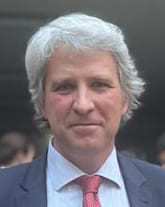 José M. Rueda-Cantuche (EC) |
 Fabienne Montaigne (EC) |
 Joaquim Guilhoto (IMF) |
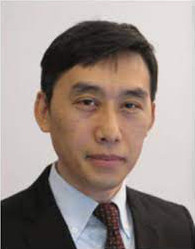 Norihiko Yamano (OECD) |
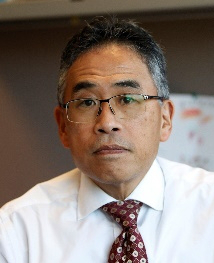 Keiji Inoue (UN-ECLAC) |
The Chair will make a brief introduction of the GIANT initiative and will ask each panellist to explain the origin, the why and the main challenges ahead of each of their own institutional initiatives. Then, panellists will discuss about the importance of having a common initiative, the role of each institution in this collaborative work as well as the benefits users can have from it. The floor will be opened for questions and answers after the discussion.
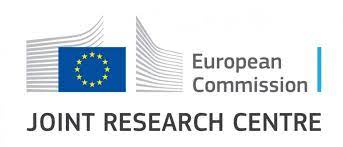
|

|

|
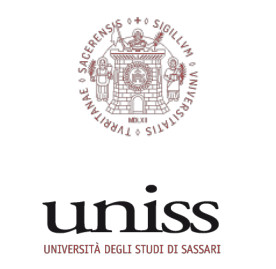
|
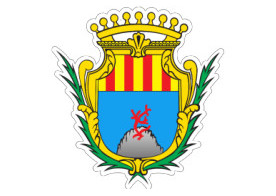
|
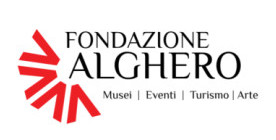
|